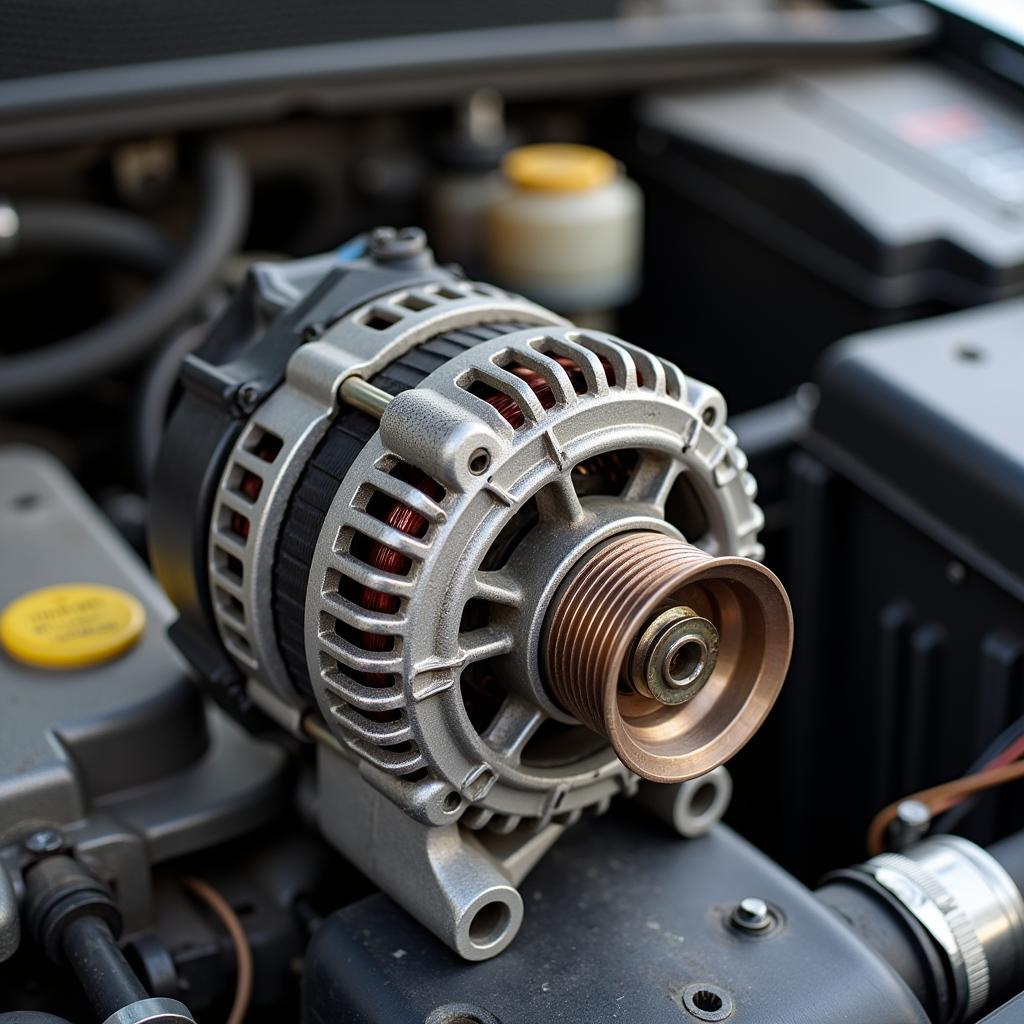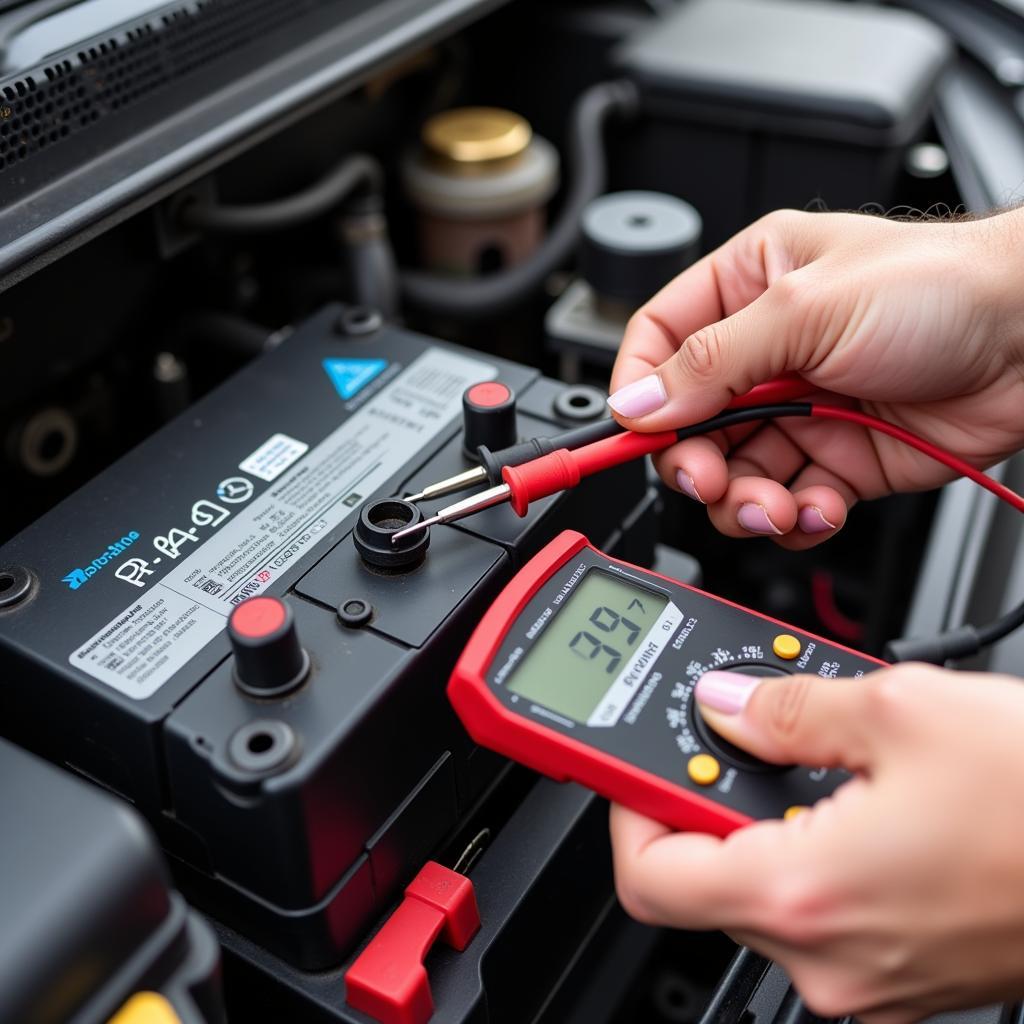A dead battery is a common reason why your car won’t start, and jump-starting often seems like the perfect solution. But what if your car won’t start even after a jump start? This can be frustrating, but don’t panic. This article will guide you through the common causes and provide practical solutions to get you back on the road. car battery fully drained is often the initial problem, but there may be underlying issues contributing to the persistent starting failure.
Why Your Car Won’t Start After a Jump
Several reasons can explain why your car still refuses to start after a jump start. Identifying the root cause is crucial for implementing the right fix. It could be anything from a faulty starter to a more complex electrical issue.
Bad Starter Motor
One of the most common culprits is a bad starter. The starter motor is responsible for cranking the engine, and a failing one won’t be able to do its job even with a jump. You might hear a clicking sound when you turn the key, which often indicates a starter problem.
Faulty Alternator
 Faulty Alternator Preventing Car Start
Faulty Alternator Preventing Car Start
The alternator recharges your battery while the engine is running. If it’s faulty, your battery won’t receive the necessary charge, leaving you stranded even after a jump. car wont start from jump is a common symptom of a failing alternator.
Corroded Battery Terminals
Corroded battery terminals can prevent the proper flow of electricity, hindering the jump start’s effectiveness. Clean terminals are essential for a healthy electrical system.
Damaged Wiring
Damaged wiring or loose connections within the starting circuit can interrupt the power supply to the starter, preventing the engine from cranking. Thoroughly inspecting the wiring is crucial in this case.
Troubleshooting a Car That Won’t Start After a Jump Start
Here’s a step-by-step guide to troubleshoot the issue:
- Check the Battery Terminals: Ensure the battery terminals are clean and tightly connected. Corrosion can disrupt the electrical connection.
- Inspect the Starter: Listen for a clicking sound when you turn the key. This often indicates a faulty starter.
- Test the Alternator: Use a multimeter to check the alternator’s voltage output. A low reading suggests a problem.
Further Diagnostic Steps
 Checking Car Battery Voltage with Multimeter
Checking Car Battery Voltage with Multimeter
If the basic checks don’t reveal the issue, consider these advanced steps:
- Check the Fuel System: Ensure the fuel pump is working and delivering fuel to the engine.
- Inspect the Ignition System: A faulty ignition switch, coil, or spark plugs can prevent the engine from starting.
- Seek Professional Help: If you’re unable to identify the problem, consult a qualified mechanic. car jump starts but wont start again can indicate a deeper issue requiring professional diagnosis.
“A seemingly simple starting problem can sometimes point to a more complex underlying issue. Don’t hesitate to seek professional help if you’re unsure,” advises John Smith, Senior Automotive Technician at Auto Experts Inc.
Preventing Future Starting Problems
Regular maintenance can help prevent starting issues:
- Regular Battery Checks: Check your battery’s health periodically.
- Clean Battery Terminals: Keep the terminals clean and free of corrosion.
- Alternator Maintenance: Have your alternator inspected during routine service.
car not starting after jump can be avoided with preventative measures like addressing car battery drain reasons.
“Preventative maintenance is key to a healthy car. Regular checks can save you from unexpected breakdowns,” adds Maria Garcia, Lead Mechanic at Efficient Auto Solutions.
Conclusion
A car that won’t start after a jump start can be caused by several issues, ranging from a dead battery to a faulty starter or alternator. By following the troubleshooting steps outlined in this article, you can pinpoint the cause and take appropriate action. Regular maintenance is crucial to prevent future starting problems and keep your car running smoothly. Remember, addressing the underlying issue is key to getting your car back on the road, so don’t delay in troubleshooting when your car won’t start after a jump start.
FAQ
-
Can a bad starter cause a car not to start after a jump? Yes, a faulty starter motor often prevents the engine from cranking even with a jump start.
-
How can I tell if my alternator is bad? A low voltage reading from the alternator, using a multimeter, suggests a faulty alternator.
-
What should I do if my car still won’t start after checking the battery and starter? Check the fuel and ignition systems, or consult a qualified mechanic for further diagnosis.
-
How often should I check my car battery? It’s recommended to check your battery’s health every few months.
-
How can I prevent my car battery from draining? Ensure all electrical accessories are off when the car is not in use and address any parasitic draws promptly.
-
Is it safe to jump-start a car with a completely dead battery? Yes, but ensure proper jump-starting procedures are followed and the jumper cables are correctly connected.
-
What should I do if I’m unsure about troubleshooting my car’s starting problem? Consult a qualified mechanic for professional diagnosis and repair.

